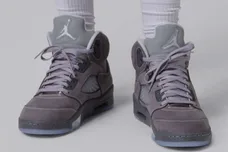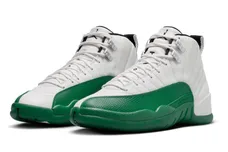In the world of hip-hop, rivalries and beefs are often as intense as they are intriguing. The ongoing feud between Kendrick Lamar and Drake has been no exception, with both artists trading bars and references that delve deep into the legacies of two music icons: Michael Jackson and Prince. This beef has become an exploration of artistic merit, commercial success, and celebrity, all through the lens of these two legendary figures. At the crux of this battle lies a fundamental divide: Prince (Kendrick Lamar) versus Michael Jackson (Drake). This topic has been a consistent point of contention, brought up repeatedly by both artists throughout their careers. In making comparisons to these icons, the musicians are asserting their respective identities and claiming a place in music history.
Prince Vs. Michael Jackson
On tracks like "You Only Live Twice" and "Toosie Slide," Drake boldly proclaims himself as the embodiment of Jackson. He boasts about his ability to "dance like Michael Jackson" and proclaims that he is "MJ in every way." These declarations are a clear nod to the King of Pop's unparalleled popularity and showmanship. Lamar, on the other hand, has consistently aligned himself with Prince. On songs like "Mask Off (Remix)," "Real 92.3 Freestyle," and "Somebody," he claims that Prince "lives through" him, fluctuating his vocals like the Purple One and embracing the artistic fearlessness that defined Prince's legacy. The dichotomy between Kendrick Lamar and Drake has ignited a fascinating conversation about the true meaning of greatness in music. Lamar appears to revere artistic genius and boundary-pushing creativity, while Drake seems drawn to Jackson's unprecedented fame and global reach.
"First Person Shooter"
On "First Person Shooter," Drake makes grandiose claims about his successful career, shouting out the Beatles and Michael Jackson. Notably, he references being just one song away from tying Jackson's record for the most number-one US Billboard Hot 100 singles by a solo male artist. In the music video, he dons a sequined glove and performs the "Beat It" dance steps, symbolically claiming Jackson's crown.
“Like That”
On the track "Like That," Kendrick Lamar takes a direct shot at Drake's affinity for Michael Jackson, declaring, "Prince outlived Mike Jack." This line is a powerful statement that references how Prince died roughly seven years after Michael Jackson. However, Kendrick also suggests that Prince's artistic legacy transcends even the monumental achievements of the late Michael Jackson, though Lamar isn't insulting the latter. Rather, he's asserting that true artistry should be valued above commercial dominance.
“Push Ups”
Drake, however, refuses to back down. On "Push Ups," he responds with the line, "What's a prince to king? He a son, n----." This retort flips the dynamic, positioning Drake as the "king" and Kendrick Lamar as the "prince," a mere heir to his throne. Moreover, Michael Jackson's eldest son's name is Prince. It's a clever play on words that speaks to Drake's undeniable success, albeit without directly addressing Lamar's artistic critique.
“Euphoria”
As the battle continues, the references become more layered and complex. On "Euphoria," Lamar opens with a reversed audio sample from the movie The Wiz starring Michael Jackson. It features Richard Pryor's character saying, "Everything you say about me is true, I'm a phony." This bold move sets the stage for Lamar's response, potentially hinting at allegations against Drake's character. Kendrick Lamar then follows with the line, "Got a Benjamin and a Jackson all in my house like I'm Joe, okay."
This multilayered reference not only flips Drake's "prince to king" line, positioning Kendrick Lamar as Drake's "father" figure, but also pays homage to Michael Jackson's father, Joe Jackson, and the iconic singer's childhood pet rat named Ben (a nod to Michael's second album). It's a clever play on words that intertwines financial success (Benjamin Franklin and Andrew Jackson on U.S. currency) with familial dynamics and subtle allusions to Michael Jackson's personal life. It's also a subtle yet potent way for Lamar to reclaim the "son" moniker, positioning himself as the true heir to the throne.
“6:16 In L.A.”
"It's time that you look around on who's around you/Before you figure that you're not alone, ask what Mike would do," Kendrick raps as the final bars on "6:16 In L.A." After incessantly calling out Drake for being surrounded by snakes within his team on "6:16 In LA," Kendrick Lamar ominously warns Drake of a fate similar to Michael Jackson's. The line references Jackson's hit "You Are Not Alone," while the phrase "ask what Mike would do" mirrors sayings like "What Would Jesus Do?" -- hinting that Drake may be worshipping the wrong idols. Lamar seems to allude to the circumstances around Jackson's 2009 death, which was ruled a homicide due to a lethal mix of drugs administered by his personal doctor Conrad Murray, who was later convicted of involuntary manslaughter. The lyrics suggest Drake should be wary of those close to him.
Moreover, the reference to "You Are Not Alone" - written by R. Kelly, who has faced allegations of sexual misconduct with minors - could be seen as Kendrick doubling down on implications about Drake's rumored interests. Lamar may be implying Drake needs self-reflection, akin to Jackson's "Man In The Mirror," after previously calling him a "master manipulator" on "euphoria." The haunting lyric serves as a multi-layered warning - urging Drake to re-evaluate his circle, his idols, and ultimately himself, before suffering a tragic downfall like icons before him.
“Family Matters”
On "Family Matters," Drake delivers some of his most pointed jabs, rapping, "Your darkest secrets are comin' to light/ It's all on your face like what happened to Mike/ Oh shit, it's all makin' sense, maybe I'm Prince and you actually Mike/Michael was prayin' his features would change so people believe that he's actually white/ Top would make you do features for change, get on pop records and rap for the whites/ And wait, you say your brother Jermaine, but you wanted him to stay out of the light."
Drake starts by implying Lamar has dark secrets being exposed, comparing it to Jackson's vitiligo. Vitiligo is an autoimmune disorder that caused the pop icon's skin to lighten. He's responding to Lamar's "Prince outlived Mike Jack" line, flipping the script to declare himself as the "Prince" who will outshine and outlast Lamar, the "Michael." The lyrics then take aim at Lamar's musical direction. Drake insinuates that just as Jackson used makeup and skin-bleaching to appear whiter, Lamar does pop features with acts like Maroon 5 and Taylor Swift to pander to white audiences on "orders" from his former label boss Anthony Tiffith.
It's a multifaceted critique - questioning Lamar's authenticity and Blackness while mocking his need to chase mainstream, white popularity. The "Jermaine" line also randomly ropes in J. Cole, Lamar's brother-like collaborator, with allusions to Jackson’s brother Jermaine, implying Lamar doesn't want him in the spotlight. With these heated bars, Drake wields Jackson's complicated heritage as a weapon. He uses racially-charged insinuations to strip Lamar of his street cred and artistic integrity.
Enduring Legacies and Artistic Ideal
Beyond the lyrical exchanges, this beef highlights the enduring influence of Michael Jackson and Prince on contemporary music. Their contributions continue to shape the discourse around what it means to be a true artist. Both figures have served as powerful archetypes for opposing ideals. Ultimately, Kendrick Lamar and Drake's beef has transcended mere lyrical jabs. It has evolved into an exploration of creative identity, legacy, and fame's complexities. Michael Jackson and Prince have inspired both of these rappers to speak to the very core of what it means to be a true musician in today's world.
[Via]









